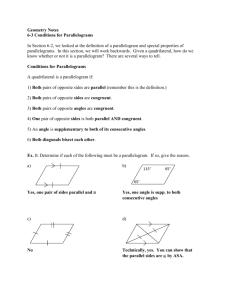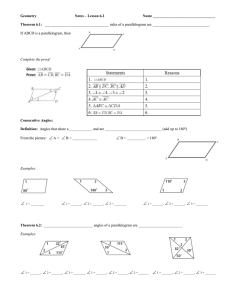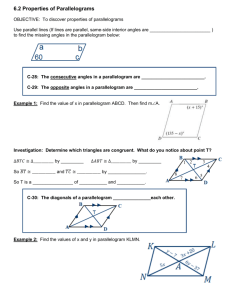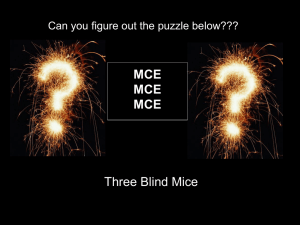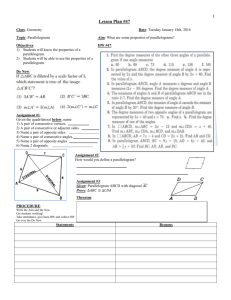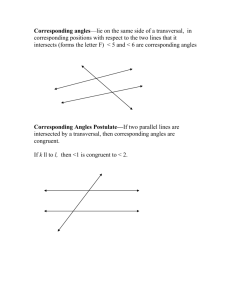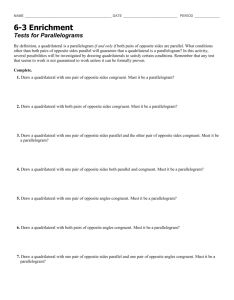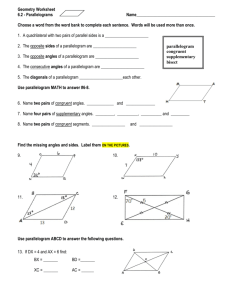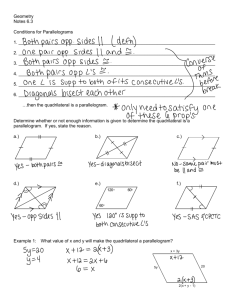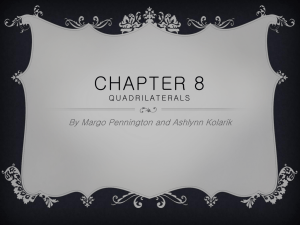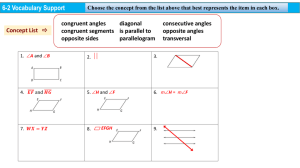6.2 Properties of Parallelograms
advertisement
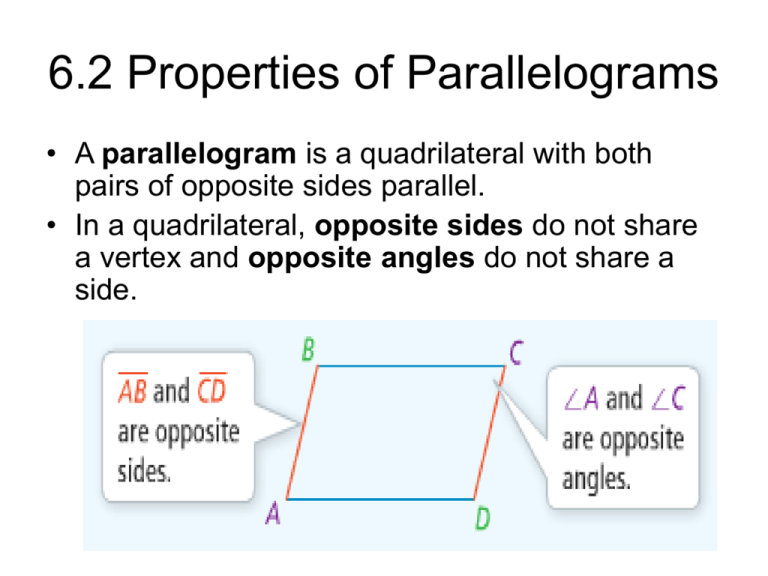
6.2 Properties of Parallelograms • A parallelogram is a quadrilateral with both pairs of opposite sides parallel. • In a quadrilateral, opposite sides do not share a vertex and opposite angles do not share a side. Theorem 6.3 • If a quadrilateral is a parallelogram, then its opposite sides are congruent. Consecutive Angles • Angles of a polygon that share a side are consecutive angles. Theorem 6.4 • If a quadrilateral is a parallelogram, then its consecutive angles are supplementary. Using Consecutive Angles • A. B. C. D. What is the measure of angle P in parallelogram PQRS? 26° 64° 116° 126° mP mS 180 mP 64 180 mP 116 Theorem 6.5 • If a quadrilateral is a parallelogram, then its opposite angles are congruent. Theorem 6.6 • If a quadrilateral is a parallelogram, then its diagonals bisect each other. Using Algebra to Find Lengths • Solve a system of linear equations to find the values of x and y in parallelogram KLMN. What are KM and LN? Using Algebra to Find Lengths KP MP LP NP y 10 2 x 8 x y2 y 10 2( y 2) 8 y 10 2 y 4 8 10 y 4 14 y x 14 2 x 16 KM 2( KP) KM 2( y 10) 2(14 10) 48 LN 2( LP) LN 2x 2(16) 32 Theorem 6.7 • If three (or more) parallel lines cut off congruent segments on one transversal, then they cut off congruent segments on every transversal. Using Parallel Lines and Transversals • In the figure, AE || BF || CG || DH, AB = BC = CD = 2, and EF = 2.25. What is EH? EF = FG = GH EH = EF + FG + GH EH = 2.25 + 2.25 + 2.25 EH = 6.75 More Practice!!!!! • Homework – p. 364 - 365 #9 – 12, 14 – 27, 29 – 30 ALL.
